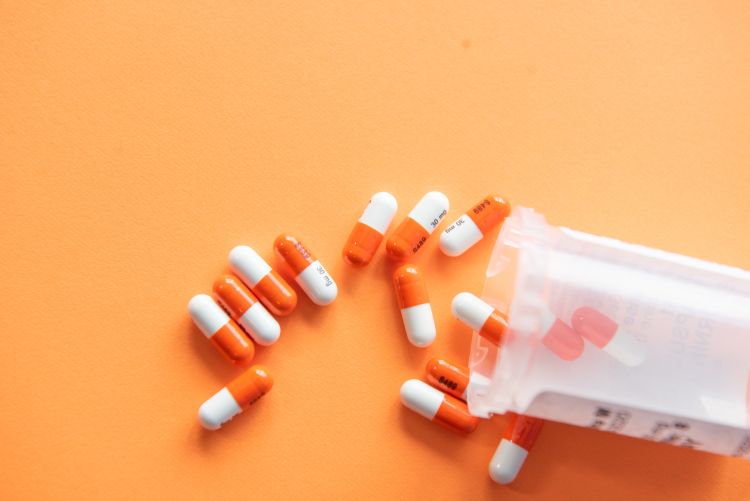
Generic drugs industry shake up: India, a global hub for affordable, life-saving generic drugs, might face challenges in producing cost-effective alternatives to expensive drugs if a recommendation from the proposed trade deal between India and the European Free Trade Association is implemented. A leaked chapter on intellectual property (IP) has reportedly caused alarm in the Indian pharmaceutical industry due to a data exclusivity proposal that could halt the production of generic medicines for at least six years.
This concern is echoed by international medical humanitarian organisation Médecins Sans Frontières (MSF), also known as Doctors Without Borders, Public Eye, and the Delhi Network of Positive People (DNP+), according to information released by bilaterals.org. For Indian pharmaceutical companies, data exclusivity means delays in registering generic versions of new medicines or formulations for a fixed period, even in the absence of a patent.
READ | Urban unemployment data mask gender gap, quality of work
Impact of FTAs on generic drugs industry
The Indian pharmaceutical sector, known for avoiding costly research and clinical trials, could be compelled to conduct expensive trials due to the lack of publicly available data, according to the new proposal. This might lead to some manufacturers bypassing necessary trials, thereby endangering patient safety. In instances where a new medicine is patented, data exclusivity could prevent the issuance of compulsory licenses that allow generic manufacturers to produce more affordable medicines, according to MSF’s official statement.
Beyond cost implications, the data exclusivity proposal also raises ethical concerns. Access to affordable medicines is crucial for public health, particularly in developing countries heavily reliant on Indian generics. Delaying generic production for six years can have devastating consequences, limiting treatment options and potentially sacrificing lives. This raises questions about the trade-off between intellectual property protection and the right to health, especially for essential medicines. Public health advocates argue that granting monopolies through data exclusivity prioritises corporate profits over ensuring equitable access to life-saving treatments.
Data exclusivity provisions protect technical information about new medicines, delaying competition and the availability of affordable generic alternatives. EFTA, comprising Iceland, Switzerland, Norway, and Liechtenstein, is still in negotiation with India to finalise the trade deal, with the threat to generic manufacturing remaining a significant concern.
India’s role as a primary supplier of affordable generics to developing countries has sparked criticism from health groups and patient advocates regarding the proposed data exclusivity clause. They argue that it would greatly increase medicine costs in India by expanding monopolies and profiteering.
Historically, India has resisted data exclusivity clauses in trade agreements to protect its domestic generic drug industry and maintain the production of affordable generics. Despite ongoing negotiations with EFTA, initiated 16 years ago and stalled since late 2013, concerns remain about the impact on India’s pharmaceutical sector.
Challenges facing Indian pharmaceutical industry
The industry also contends with other issues, such as increased WHO scrutiny over substandard cough syrup production and heightened USFDA inspections, reflecting concerns over India’s role in producing counterfeit drugs. ASSOCHAM reports that fake drugs constitute 25% of India’s domestic medicine market, and WHO estimates that 35% of the world’s counterfeit drugs are produced in India. These challenges, along with limited R&D spending compared to global counterparts, hinder India’s pharma sector’s innovation and competitiveness.
The proposed data exclusivity clause adds another layer of complexity to India’s fight against counterfeit drugs. Critics argue that the clause might hinder research efforts focused on identifying and combating counterfeits, as access to crucial data becomes restricted. Additionally, increased costs of generic production due to data exclusivity could incentivise counterfeiters to exploit the price gap, potentially putting vulnerable populations at greater risk of unsafe alternatives. Ensuring robust intellectual property protection without compromising public health and fuelling the counterfeit market requires striking a delicate balance.
Another vulnerability is India’s dependency on China for 80% of its active pharmaceutical ingredients (APIs), exposing the industry to price and supply risks. Despite these challenges, India remains the world’s third-largest pharmaceutical producer, with a significant role in the government’s Jan Aushadhi Scheme to provide free medication to the underprivileged. Balancing affordable medicine access with intellectual property rights is complex, but ongoing discussions with stakeholders may help resolve these issues while promoting the greater good.
